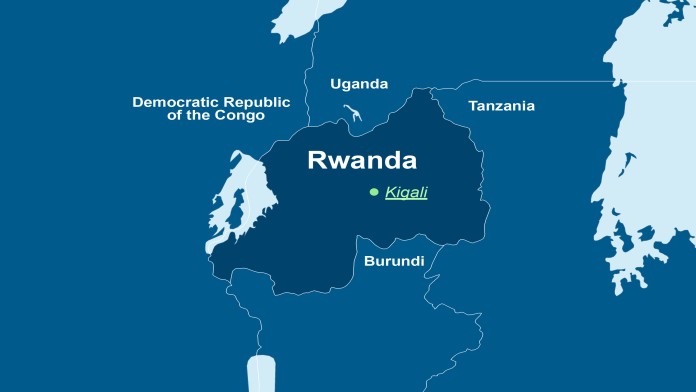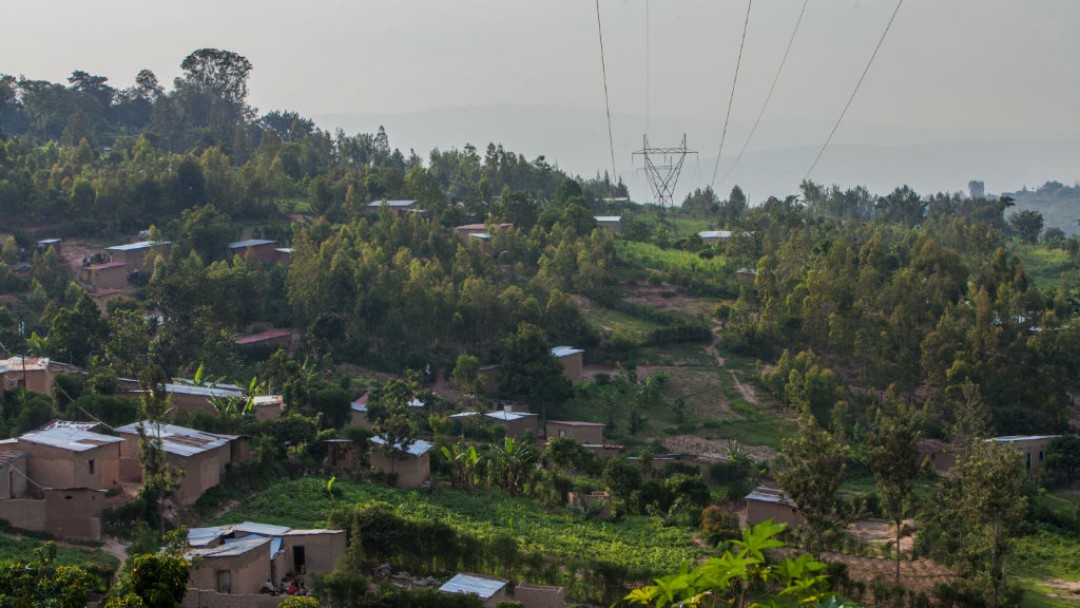
As of: 03/2024
Germany is supporting Rwanda in raising its climate change adjustment potential. To this end, KfW, commissioned by the German Federal Government, is financing the Rwanda Green Fund (RGF), which in turn supports Rwandan climate projects. A new green neighbourhood in Kigali is also intended to be a model project whose technologies can serve as an example for other African cities – from rainwater use to district sewage treatment plants. The Green and Sustainable Development Partnership between Germany and Rwanda is intended to help the country develop economically while keeping greenhouse gas emissions to a minimum.
Climate change is becoming more noticeable in Rwanda than in many other regions of the world. The average temperature in the east African country has risen by more than 2.5 degrees on a long-term average in some places, while the global increase is 1 degree. There has been an increase in droughts as well as flooding and soil erosion. This is leading to crop failure and soil deterioration.
Despite positive economic development, Rwanda remains one of the poorest countries in the world, with more than half of the population living below the poverty line. Poor families are at a particular disadvantage when it comes to adapting to the consequences of climate change because they cannot compensate for loss of crops or other disasters.
Rwanda’s economy is based on agriculture, which depends on rain. Its main exports are coffee and tea. Loss of crops due to lack of rain or heavy rains are therefore seriously damaging to the economy. Life in rural areas is becoming less and less attractive due to the increasing difficulties associated with making a living from agriculture. For this reason, many people are moving to the cities. These cities are often overwhelmed by the vast influx of people and are unable to offer adequate services such as schools, hospitals, electricity supply or water and sewage disposal.

Rwanda is among the countries with the lowest greenhouse gas emissions anywhere in the world. There is great potential to combine economic development with climate change adjustment. The vision of a modern and at the same time sustainable Rwanda includes improving people's living conditions while at the same time promoting climate action.
Urbanisation in this small landmass country can be steered by encouraging urban densification rather than urban sprawl. One example of this is Green City Kigali, where high-quality and sustainable homes are to be built within a small area.
Commissioned by the Federal Ministry for Economic Cooperation and Development (BMZ), KfW is supporting Rwanda in embarking on a sustainable development path and promoting climate change adaptation. As part of the climate and development partnership, the BMZ has committed a total of around EUR 220 million so far.
On the one hand, these funds flow into the 2013 Rwanda Green Fund (RGF), which designs climate projects and makes them attractive to international donors. Examples of approaches that the RGF could promote with the help of the German funds include flood protection dams, rain water management, the use of renewable sources of energy and the preservation of ecosystems.
On the other hand, the Green City Kigali pilot project is being supported. This flagship project is creating a climate-friendly neighbourhood with affordable housing. There are plans for the use of rain water, solar panels and the implementation of sustainable building standards.
The projects funded by the RGF will help reduce greenhouse gas emissions by in the region of 200,000 tonnes of carbon dioxide equivalents. Of this, 11,000 tonnes are to be attributable to the project financed by KfW.
The projects funded by the RGF are also intended to better protect at least half a million people from the consequences of extreme weather events.
The programme is helping to reduce the ecological footprint of Rwandan cities and create affordable housing, improving the living conditions of the population.
The project contributes to the achievement of these following United Nations Sustainable Development Goals:
KfW Group
KfW Development Bank
Country sector Sub-Saharan Africa
Share page
To share the content of this page with your network, click on one of the icons below.
Note on data protection: When you share content, your personal data is transferred to the selected network.
Data protection
Alternatively, you can also copy the short link: https://www.kfw-entwicklungsbank.de/s/enzBzDtD
Copy link Link copied